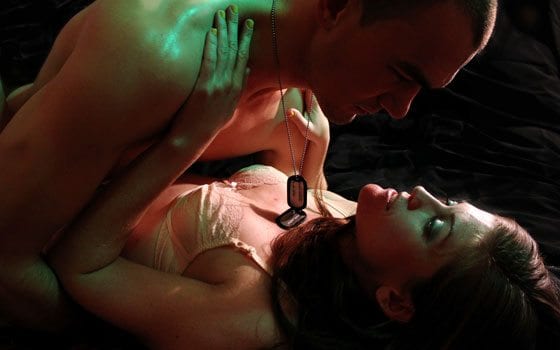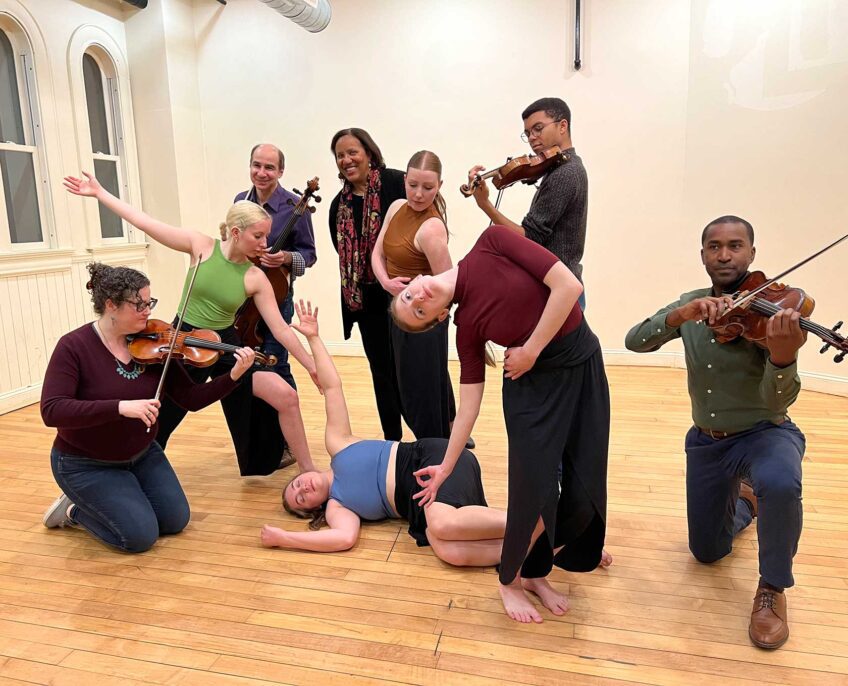
If any playwright plumbed the mysterious terrain of human desire, it was Tennessee Williams.
In such masterful dramas as “Cat on a Hot Tin Roof” and “A Streetcar Named Desire,” he wrote with eloquent poetry and visceral insight about human beings grappling with inner and outer demons in both pursuit of and retreat from true intimacy.
As landmark plays like “Who’s Afraid of Virginia Woolf?” pushed the envelope of candor on the stage, Williams did the same in his later work. One such work-written in 1970 but unpublished until 2008-is a fascinating one-act play called “Green Eyes,” now in its area premiere as a co-production of Company One and a New York-based company called The Kindness.
Set in a New Orleans hotel suite during the Vietnam War, “Green Eyes” focuses on a battle between newlyweds identified as Mr. and Mrs. Claude Dunphy. To make the verbal and very physical encounter as immediate as possible, The Kindness and director Travis Chamberlain stage the under one hour play in an actual hotel suite – earlier in New York at the Hudson Hotel, now in Boston at the Ames Hotel. The purposely small audience – limited to 25 per performance – is so close to the human fireworks that the front row of theatergoers are practically at the edge of the queen bed that dominates the suite and even closer to a breakfast tray that a waiter plays before the honeymooners.
In fact, in this very adult drama (with mature language and some nudity), Mrs. Dunphy – played with rich sensuality and remarkable naturalness by Erin Markey – actually asks a front row audience member to help unzip her dress.
The sparring between Mrs. Dunphy and Claude prove as highly charged and intimate as the hotel suite. Claude, wearing dark sunglasses, dog tags and shorts, seethes with uncertainty about what appear to be tooth and claw marks on her skin.
Alan Brincks, who plays Claude, has the muscular fitness of a young soldier as well as the dangerous volatility of a suspicious husband. Could the marks and something he found in the bathroom be evidence of infidelity?
Mrs. Dunphy speaks of being intimate with a man she calls Green Eyes. She seems to taunt Claude, saying that the man in question was worth 20, 30 even 50 of him.
The play’s title also relates to the eyes of the tiger in a painting above the newlyweds’ bed. These eyes take on a phosphorescent glow at a key moment in designer Derek Wright’s striking lighting.
Could their claims and counter claims be game playing a la George and Martha’s blistering arguing in “Who’s Afraid of Virginia Woolf?”
What makes their rough-housing on the bed and their emotional war all the more alarming is a possible racist streak in Claude. Claude actually uses the N-word in accusing his bride, calling her a whore bedded by a black man. Though inner conflict about killing women and children in Vietnam (called “Waakow” in the play perhaps to reflect the unreality of war) is, of course, no excuse for bigotry, Claude may be suffering from what is now called Post Traumatic Stress Disorder.
On leave from the war but scheduled to return soon, Claude seems very conflicted about following orders. In his troubled state, he seems to see the black waiter – played with proper stoicism by Sheldon Brown, a B.F.A. acting major at Emerson College – as a soldier dressed in a Marine camouflage outfit.
Williams never excuses this clearly very flawed couple. As always in his work, he does mean for theatergoers to see his love-torn characters in all their complexity.
In “Green Eyes,” mysterious Mrs. Dunphy seems more complex than her husband. If Claude seems bogged down in hot-tempered unrest, his sultry wife alternates arrestingly between a healthy sensuality and an apparent need to scandalize her husband.
Admittedly, the game playing – in their hotel bed as well as in their ballistic exchanges – never reaches the satisfying serenity George and Martha achieve at the end of Albee’s play.
Still, “Green Eyes” does resonate with Tennessee Williams’ uniquely intimate view of marital intimacy.
Green Eyes appears through February 26; 617-292-7110 or greeneyeswaitlist@gmail.com).




![Banner [Virtual] Art Gallery](https://baystatebanner.com/wp-content/uploads/2024/04/NJ-H_1-713x848.jpg)

